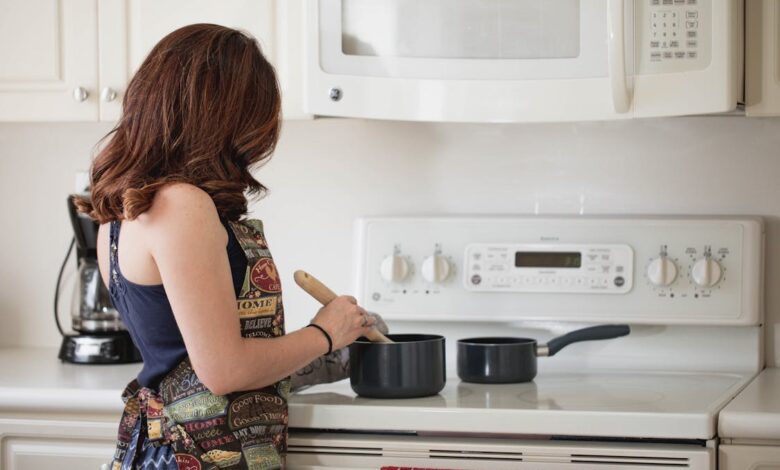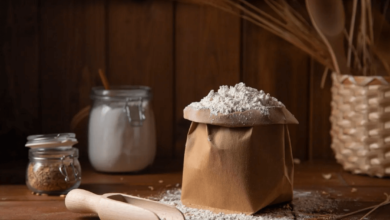The Art of Cooking at Home: Tips for Beginner Chefs

Cooking at home can be a delightful and enriching experience, especially for those just starting their culinary journey. Beyond just preparing daily meals, cooking allows you to unleash your creativity, understand nutritional values, and enjoy the satisfaction of creating something delicious from scratch. For beginners, the process might seem daunting at first, but with the right approach, anyone can become proficient in the kitchen. This article aims to guide novice chefs through the foundational steps necessary to cultivate their cooking skills confidently and joyously.
Start with the Basics
The first step in any beginner chef’s journey is mastering basic cooking skills. These foundational techniques include chopping vegetables, sautéing, boiling, and baking. Start by practicing knife skills, such as how to hold a knife properly for different cuts and understanding the best ways to chop various types of vegetables and meats. Basic cooking methods like sautéing onions or boiling pasta are essential and serve as building blocks for more complex dishes. Learning these skills will provide the confidence needed to tackle more advanced recipes in the future.
Explore Global Cuisine
One of the most exciting aspects of cooking is the opportunity to explore a wide array of global cuisines, which introduces you to unique ingredients and diverse cooking styles. For beginners, trying out simple recipes from different cultures can be an enlightening experience. A great dish to start with is Mongolian beef and noodles. This dish combines tender slices of beef with bold flavors and noodles, offering a delicious introduction to Asian cuisine. Experimenting with such recipes not only expands your palate but also enhances your culinary knowledge and skills.
Invest in Quality Tools
Having the right tools can make a significant difference in the cooking experience. Investing in quality kitchen equipment starts with a few essentials: a sharp chef’s knife, durable cutting boards, and a set of reliable pots and pans. A good knife is crucial for efficient and safe chopping, while heavy-duty pans ensure even cooking without burning. These tools don’t have to be expensive; many high-quality items are available at reasonable prices. Equipping your kitchen with the right tools will make the cooking process smoother and more enjoyable.
Understand Flavor Profiles
Understanding and mastering flavor profiles is crucial to becoming a good cook. The four basic flavor profiles are sweet, salty, sour, and bitter. Knowing how to balance these flavors can turn a bland dish into something mouthwatering. For instance, if a dish tastes too bitter, adding a bit of sweetness can provide balance. Beginners should start by tasting their dishes often and adjusting the seasonings as they cook to develop a more intuitive sense of how flavors work together. This understanding will greatly improve the quality of the meals you prepare.
Follow Recipes Carefully
When you’re new to cooking, following recipes carefully can significantly aid in learning the process and achieving good results. Recipes provide a roadmap to preparing a dish, detailing ingredient measurements, cooking times, and step-by-step instructions. It’s crucial to read through the entire recipe before starting to ensure you understand all the steps and have all the necessary ingredients and equipment. Measuring ingredients accurately and adhering to the cooking times recommended can help avoid common cooking mistakes and ensure that the dish turns out as intended.
Learn to Use Herbs and Spices
One of the simplest yet most transformative skills you can develop as a new chef is learning how to use herbs and spices effectively. These ingredients are the keys to enhancing the flavor of any dish without adding extra fat or calories. Start with common herbs and spices like basil, oregano, paprika, and black pepper. Experiment by adding them to your dishes to see how they change the flavor profile. It’s important to add herbs and spices gradually and taste as you go since it’s easier to add more than to fix a dish that’s become overwhelming.
Practice Makes Perfect
As with any new skill, becoming proficient in cooking requires practice. Don’t be discouraged by initial failures; each attempt is a learning opportunity. Set a goal to cook a new recipe at least once a week, or try to use a new technique each time you prepare a meal. Over time, you’ll find that tasks which once seemed complex become second nature. Regular practice not only enhances your skills but also builds your confidence in the kitchen, encouraging you to try more challenging recipes and techniques.
Experiment with Techniques
Expanding your cooking repertoire includes learning and mastering various cooking techniques. Each method, from grilling and roasting to steaming and poaching, offers different flavors and textures to dishes. For example, grilling imparts a smoky flavor that’s hard to replicate with other cooking methods, while steaming preserves nutrients and keeps ingredients moist. Start with one technique and use it until you feel comfortable before moving on to another. This approach helps you build a solid base of skills you can draw on no matter what you’re cooking.
Keep a Well-Stocked Pantry
A well-stocked pantry is the backbone of any good kitchen. It allows you to throw together a meal even when you think there’s nothing to eat. Essentials like rice, pasta, canned tomatoes, beans, oils, and a variety of spices can be the starting points for countless meals. Additionally, keeping stock of items like onions, garlic, and perhaps some frozen vegetables ensures you always have the basics needed to enhance any dish. Maintaining a list of pantry staples and replenishing them as they run low ensures you’re always prepared to cook a meal.
Engage with the Cooking Community
Connecting with other cooking enthusiasts can greatly accelerate your learning process. Joining cooking forums online, attending cooking classes in your community, or even following popular chefs and food bloggers can provide inspiration and new ideas. Engagement with the cooking community can also offer support from others who are on the same journey as you, sharing tips, recipes, and experiences that can benefit your culinary skills.
In conclusion, learning to cook at home is a rewarding endeavor that broadens your skills, enhances your diet, and can even bring joy into your daily life. By embracing the use of herbs and spices, committing to regular practice, experimenting with different cooking techniques, keeping a well-stocked pantry, and engaging with the cooking community, you are setting yourself up for success in the kitchen. These steps not only equip you with the necessary skills but also instill a deeper appreciation for the art of cooking. As you continue on this culinary journey, remember that each meal prepared is a step towards becoming a more competent and confident chef.




